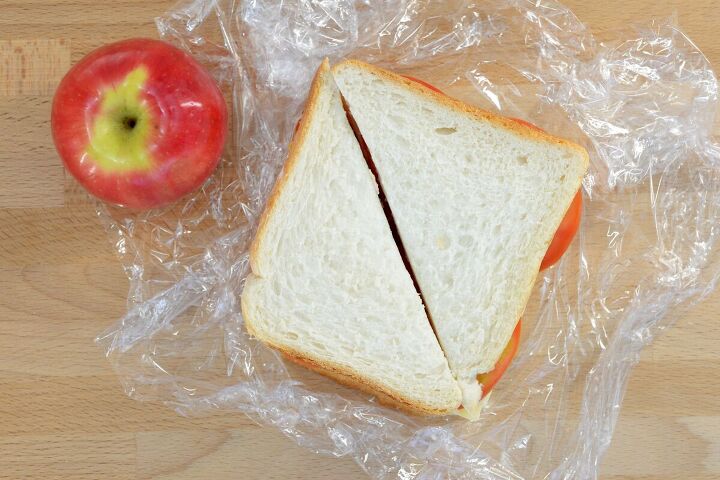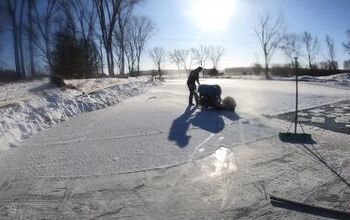7 Depression Era Tips for Living on Less

As a daughter of Depression era parents, I was raised very frugally and it has benefited me throughout my life.
Today, I want to touch on some of the things that I learned by observing them and share my ways of living on less money. These things have allowed me to retire comfortably at age 57 and lead a quality life with more free time than ever.
Here is what my parents taught me about living life on less.
1. Making things last
We used old corn straw brooms to sweep, and my mom would make those last for decades. When the straws would start to wear down or break off, she would trim off the bottom to make it where it could go again. We had to make things stretch and see the bigger picture, since getting a new one was not an option.
2. Not having things easily accessible
Yesterday I heard a lady on TikTok talking about different levels of income, and according to her, the level I belong to is struggling, going without, not being able to put food on the table and working yourself to death.
That has not been my case. I do have to make a disclaimer that I live in the country and perhaps this allows me to live more sparingly than someone in the city.
I do not have high rent, trash pickup or a water bill. This does mean I have to drive a long way to go shopping, or to see a doctor, so many services are not available here.
Amazon does not deliver here for 5-7 days, which has affected my Christmas shopping, for example.
However, I have adopted my mother’s outlook: if things are not easily obtainable, I have to figure out how to make them last or what to do in the meantime to get by. This forces me to plan ahead, which also helps me save money.
3. Doing with what you have
I grew up packing my lunch. My mom was very concerned about making sure that it was safe for me to eat come noontime, so I would have a frozen bottle of water in there to keep my food cold.
I would make myself a sandwich, and my mom would send me pears that she had canned over the summer. I never really cared for pears, but I had them every single day, and did not think about it too much. This is what we had, so this was what I was going to eat.
Today, we think about what we are hungry for, and we run to the store to fulfill our craving. None of those things were available to me growing up, and they are still not available to me now, so I have to make do with what I have.
I make sure that I am well stocked, and if I run out of something, I get creative and change up recipes. I believe that regardless of the location of the closest store, this kind of mindset of not being set on everything being so convenient all of the time can save us a lot of money.
4. Being modest about clothes
My mom made us homemade clothes. She made herself and me dresses that matched for church, and she made all of my brothers and my dad shirts out of the same bolt of fabric, and we all matched.
It helped her keep an eye on all of us, make sure everybody was together, it let everyone know we were a family, and she only bought the one bolt of fabric.
Having homemade clothes was very normal. I never learned to sew that well, but I did not get my first pair of jeans until I was in junior high, and even then they came from a second-hand store and my mom made adjustments to make them fit me better. Those were my only pair until I earned some babysitting money to buy some of my own clothes.
All of my mom's jewelry, except for her wedding ring, was costume jewelry. Having fancy jewelry or expensive wedding rings was just not in the cards, since you were going to be working in that jewelry, scrubbing things, bailing hay, feeding the chickens, and no one would see it anyway, so it was not necessary and it was not in the budget.
It is crazy how now we think of them as a necessity and we will go into debt to make sure that we have them.
5. Repairing instead of replacing
Places like shoe repair shops were very common back then. We only had two pairs of shoes: a dress pair and tennis shoes for school. If they broke down, we would take them to the shoe repair shop. He would replace the heel or the sole and we would bring those home for pennies on the dollar. It was the same for clock repair or jewelry repair – there were repair shops for each.
6. Relying on neighbors
You may have seen pictures of people standing in soup lines during the Depression, but all that was only happening in big city areas. Here in the country, no food was being given out, so we had to grow our own food and rely on ourselves and our neighbors, and they relied on us.
If things needed to be done, like roofs replaced, animals butchered, we called on neighbors. Neighbors helping neighbors was a Depression era norm that is still done today in my area. If a disaster of any kind hits, like a tornado or an ice storm, and destroys parts of your property, the neighbors will be the first ones there to help you clean up and restore your home.
7. Homemade spices
Did you know that all spice is only one teaspoon nutmeg, one teaspoon ground cloves and one teaspoon cinnamon? Or that pumpkin pie spice is only four teaspoons cinnamon, two teaspoons ground ginger, one teaspoon ground cloves, and a half of a teaspoon nutmeg?
Why are we spending so much money on a packaged version when we already have all the ingredients at home? The next time you run out of those spices, instead of running to the store, let's just whip those up at home. It is so easy and is going to save you a bunch of money, as spices are super expensive.
Tips for living on less
Do you have any more living on less money tips you have learned from your parents? Let me know in the comments!
Next, check out these Easy Kitchen Hacks to Save Money.





















Comments
Join the conversation